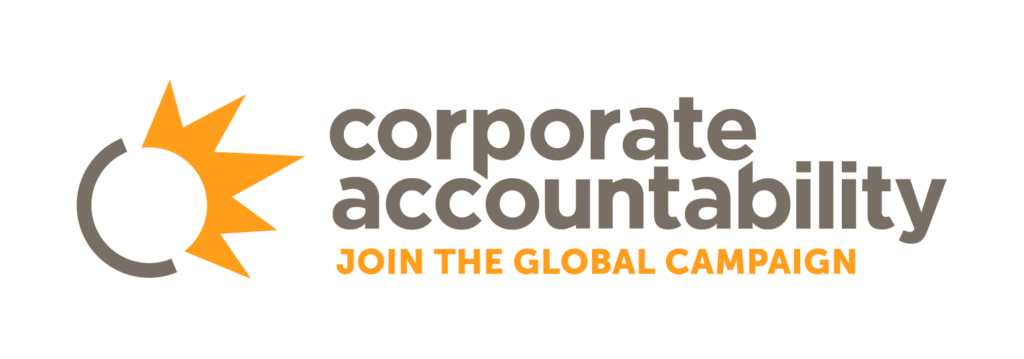
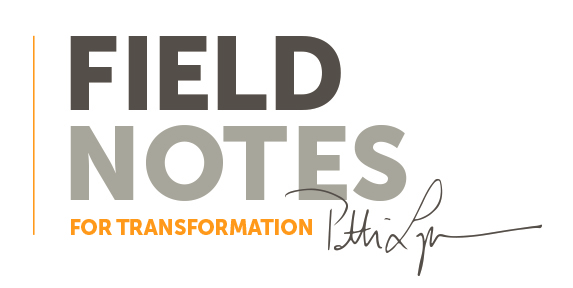
Radically shifting the status quo
Dear friend,
As you know, Corporate Accountability’s organizing is grounded in the reality that the abuses by transnational corporations affect people all around the world, and particularly people in the Global South. (Our working definition of “Global South” also includes people and communities in the geographic “Global North” who contend daily with, among other things, the current and historical legacies of corporate power and abuse as well as systemic racism.) The campaigns we wage reflect this reality, both in our organizing goals and in whose vision and guidance we follow. I am inspired and motivated every day by the Global South organizers that I have the privilege to work with. And I know from my conversations with donors like you that our international campaigning is one reason why you support this work.
Over the last few years we’ve continued to deepen our relationships with Global South organizers and evolve the ways we work around the globe. That’s why I wanted to be in conversation with Nathalie Rengifo Alvarez, our Latin America climate campaign director, for this issue of Field Notes for Transformation. Currently located in Bolivia and hailing from Colombia, Nathalie is helping to shape our overall global campaigning with her approach to partnering with allies on the front lines of the climate crisis and corporate abuse.
As she points out, in our Global South collaborations we bring a critical perspective and experience in challenging corporate power. And the way we approach partnership and funding is challenging norms; we leverage our power and resources so we can act boldly to support the vision of frontline communities.
I think you’ll be inspired by this conversation and by seeing what your support is making possible globally. As always, I look forward to hearing your responses to these Field Notes for Transformation.
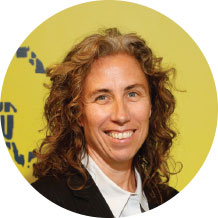
Onward,

Patti Lynn, Executive Director
A conversation between Nathalie Rengifo Alvarez and Patti Lynn on challenging corporate power
Q: We need transformative change when it comes to the climate crisis. What are some examples of real solutions that communities on the frontlines of the crisis have developed and are implementing?
Nathalie Rengifo Alvarez: Some of these real solutions come from Indigenous traditions around the production of food, irrigation, and the management of the forest and land. These practices have been around for centuries on a local scale. They are also acts of defiance. Growing food in holistic ways becomes an act of resistance to systems that seek to destroy people’s culture and traditions. It is caring for the community and nature at the same time.
Real solutions and resistance go hand in hand. These frontline communities have and continue to organize together to resist polluting corporations. Just last week, the Mapuche people, an Indigenous nation in Chile and Argentina, organized a direct action to block five different fossil fuel waste sites. Such actions usually don’t make the headlines, but this is just one of the many examples of how, every day, communities organize and develop solutions in support of their life, land, territory, language, traditions, culture, and survival.
Q: If these visions and work were well resourced, the scope of change and possibility would be vast. How does Corporate Accountability’s climate campaign support and help resource frontline communities’ organizing?
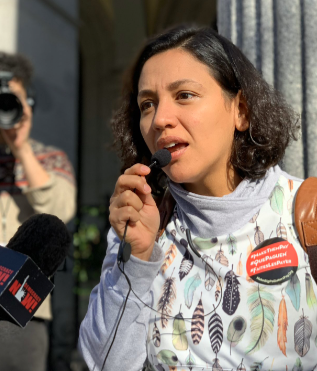
Photo credit: Tommy Vickerstaff
Nathalie: First, I want to stress the importance of Corporate Accountability’s analysis of corporate power. We come with an understanding of how the architecture of corporate power affects people’s lives, our health, and the planet. This perspective goes beyond concern for the environment—we understand that people’s lives, human rights, and democracy are being affected by structural violence created through and enforced by capitalism and colonialism.
This makes it possible for communities to trust us. They see that we are working for systemic change—not just for policy, not just for survival, but for creating conditions where people can enjoy life.
Second, our campaign to make Big Polluters pay—we call it Que Paguen here in Latin America—brings many different communities together in a space where they can find a commonality in their struggles. Then, they find that together, they can make more noise and raise their visibility. That is an important role that Corporate Accountability plays.
We also provide research support. Corporations create a veil, often by working through subsidiaries. So sometimes even the communities themselves don’t know which corporation is harming them and their land. That’s why our work to pull back the veil is also important.
And finally, so much of the work by frontline communities is limited by the lack of resources. And unfortunately, even when there is foundation funding, the funders’ agendas really limits the work that communities can do. So our ability to provide grants and our own political freedom give us and our allies the freedom to do the most important work.
Q: How does this approach of working with Global South allies relate to liability in particular?
Patti Lynn: Under current systems and configurations of power, there’s so much work needed to clear the pathways for the solutions we talked about earlier to not only thrive locally but to become dominant globally. So I see our role as researching and exposing false solutions; working in deep, trusting relationship with allies in each region; and using our organizational infrastructure to build global coalitions to kick Big Polluters out of climate policymaking and make them pay—or in other words, hold them liable.
When we add up those things, and play our role in concert with our Global South and frontline allies, it all diminishes the stranglehold of the fossil fuel industry, reduces its power, and helps create more possibilities for real solutions to take hold in tangible ways.
Nathalie: We’re working with different approaches to scale when we think about climate liability. There’s international policy, lawsuits against corporations, codifying the rights of nature. But for local communities, it’s also about getting laws that enable them to assert their rights to keep Big Polluters off their land, or even simply being consulted before the start of extractivist projects or before policies are implemented. These wins might look very small, but they have a lot of impact on communities that are directly affected and at the front lines. Corporate Accountability’s inclusive approach to what liability looks like is really important. It lets us support this kind of organizing at the local and regional levels.
Q: From our founding with the Nestlé boycott, we’ve engaged in campaigns with an international scope to challenge the life-threatening abuses of transnational corporations. We’ve always partnered with campaigners all around the world, particularly in the Global South, and that has looked different across time. What does that work look like now in the climate campaign and elsewhere across the organization?
Nathalie: I have some really specific examples of what that looks like in the Latin America climate campaign. We created materials that show Indigenous women from the Amazon, the Andes, and Patagonia, including the Mapuche, the Aymara, the Guaraní, and other Indigenous women who are resisting the fossil fuel industry. It’s important that the communities see themselves represented, and it’s also vital that we’re depicting actual communities that have been challenging corporate extractivism for centuries and continue to do so on a daily basis.
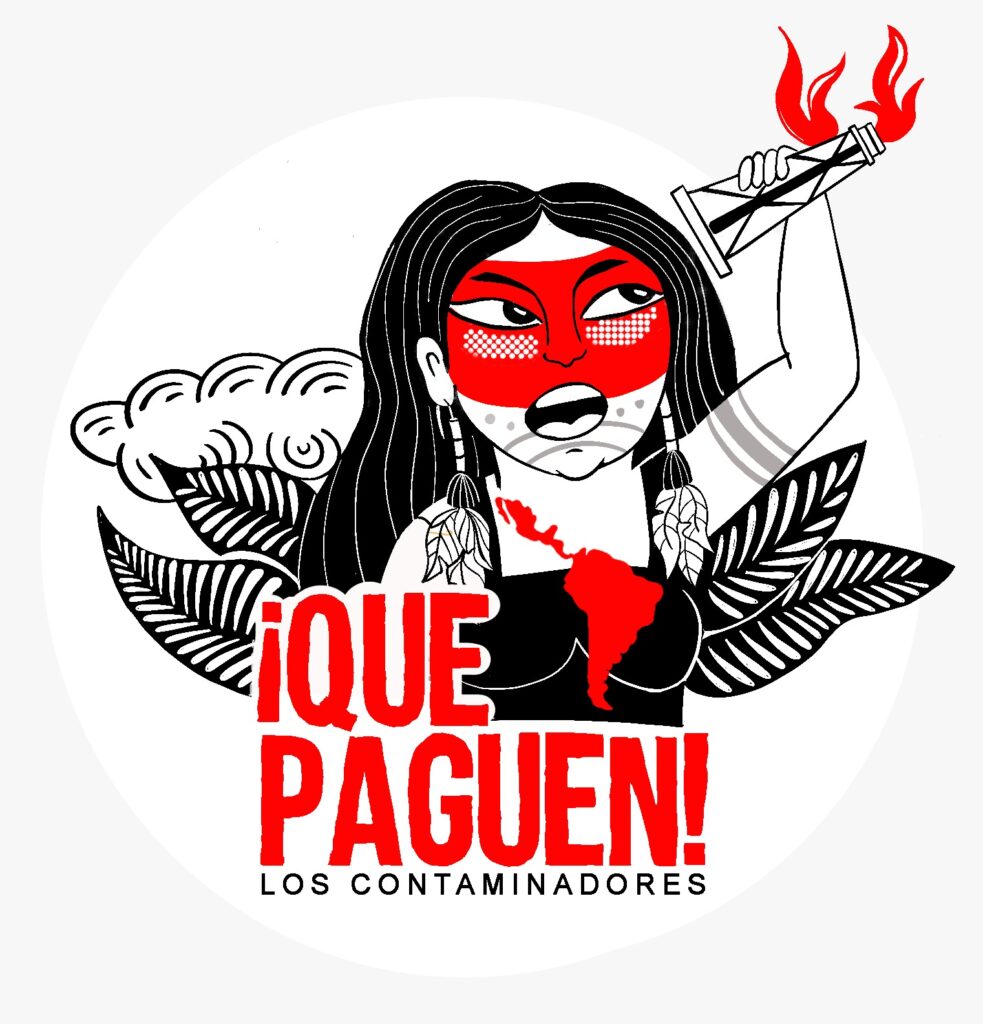
We are making it clear that the climate struggle is not a fight led exclusively by middle class, western, white, nonprofit organizers—no, the climate justice movement is, and has always been, led by Indigenous people and communities that have lived on the land for centuries—and particularly the women of these communities.
We also made sure to translate the information about our campaigns in multiple languages, including Quechua, Mapudungun, and other Indigenous languages, as well as Portuguese. This was another powerful way to enter with respect and solidarity into this organizing.
On a larger scope, as I said earlier, it makes a huge difference to be able to give financial resources to the people organizing on the front lines—whether it’s a thousand or ten thousand dollars. Right now, we are supporting several grassroots communities impacted in their territories, land, culture, and lives by big polluting and extractive corporations. These communities are challenging the processes, structures, policies, and projects that perpetuate the systemic oppression and environmental racism in Latin America.
Being able to provide consistent resourcing to these organizations not only makes an impact on the work that they can do, but also on the relationships that we can build over time.
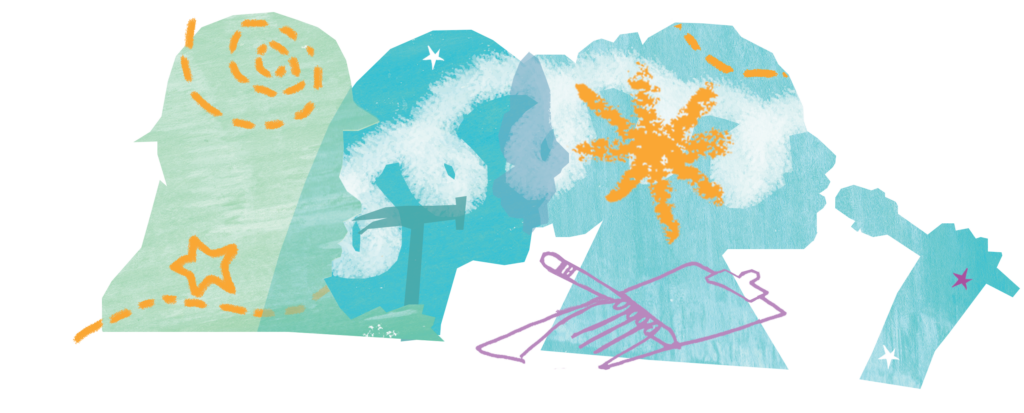
Patti: There’s something embedded in this question that, for me, brings up our need to continue to radically shift practices from entrenched status quo.
There’s been so much harm done through colonialism—which has played out in the behavior of many Global North nonprofits and the power dynamics with Global South organizations. We’re deconstructing that and building something new.
As we work in partnership with allies from the Global South, we are constantly practicing how to be in meaningful relationship, how to really listen, build trust, and break norms.
Money is one very clear, concrete example. Instead of accepting the scarcity mindset that capitalism imposes on us, we approach funding as something that we have a responsibility to share as a campaign organization. Our $7-8 million budget isn’t large compared to many nonprofits in the U.S., but we have access to more funding than our Global South allies. So in the last few years we have been institutionalizing a mindset of abundance, resource sharing, and redistribution.
Now, our grant-making program is part of what we bring to the table in relationship with our allies, so they can thrive and do their best work. We’re currently giving away more than half a million dollars a year, and we’re working on ways we can keep increasing that. Over the next three to five years, there’s so much possibility in how we can continue to grow this part of our work.
I’ve been inspired by how much enthusiasm there is from our donors for this redistribution work. Corporate Accountability donors share a radical vision of transforming power. And we have deep, trusting, and real relationships with both our allies and our donors. So we can talk about things that are taboo in dominant culture – like money and redistribution of wealth. And we can think together about how we make bold and lasting change.
Nathalie: Yes—through this work, we are changing the focus. So many international organizations work top-down. Because they have the financial means, they define the focus of the work. But with our approach, we are ensuring that the organizations at the front lines are leading and defining their own focus. Our allies are the protagonists of the work. The campaigns reflect their experiences, needs, and context.
Patti: Right. Our work is so much stronger because we can build campaigns together with our frontline allies. In a recent meeting with our close ally Corporate Accountability and Public Participation, Africa (CAPPA), we were talking about building the capacity of each of our organizations over the course of this year—not just through financial resources, but also through skill sharing. We want to we build each others’ skills across each of our organizations as partners and collaborators. For example, we consistently learn from CAPPA’s media expertise. And we’re learning from the grassroots community parliaments they are holding across Nigeria. That’s a model that all of us across the global campaign can be learning from.
Q: Why is it particularly important right now to be leveraging our access to resources and power as a Global North organization to build power behind Global South-led visions? How does it advance our mission?
Patti: Now is not a time for half-solutions or incremental solutions, given the compounding crises that we are facing in the world. And when we see the crises—both the harm and the solutions—from the perspectives of those most impacted, it changes both what we see as possible and what is necessary.
Transnational corporations like Chevron and Shell will only stop their abuses when we make them. It’s not an impossible task to make them stop if we understand that our collective future depends on it. We have so much power when we connect across communities and continents. Organizing that power behind the boldest visions for change is how we will actually win—all of us together.
Other issues of the Field Notes conversations series features Ashka Naik, research director, on leadership and corporate campaigning; Aderonke Ige, associate director of Corporate Accountability and Public Participation Africa, on democracy; and people-power Carolina Santamaria, recruitment director, on building an inclusive and effective campaign organization.


